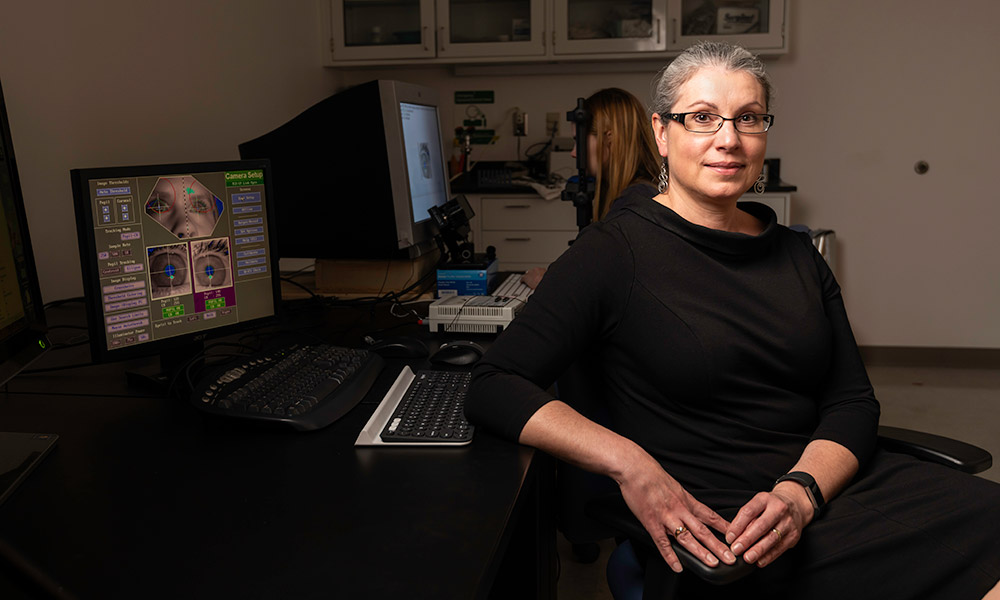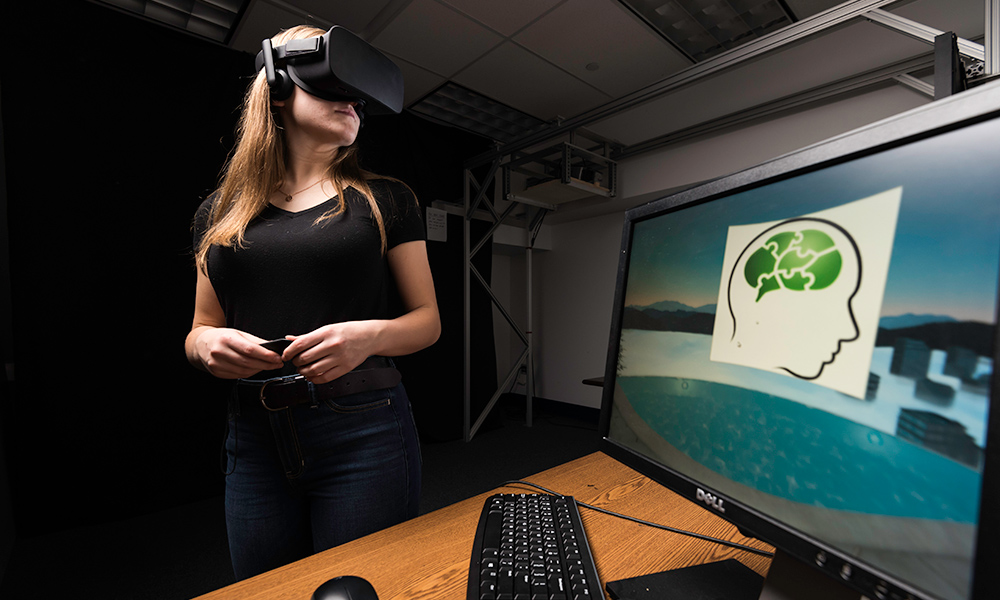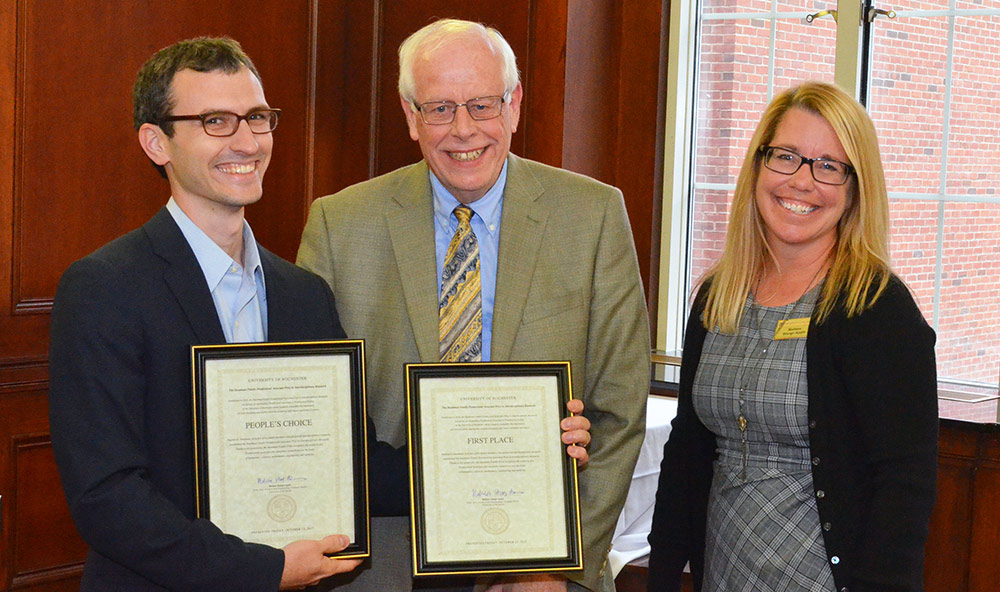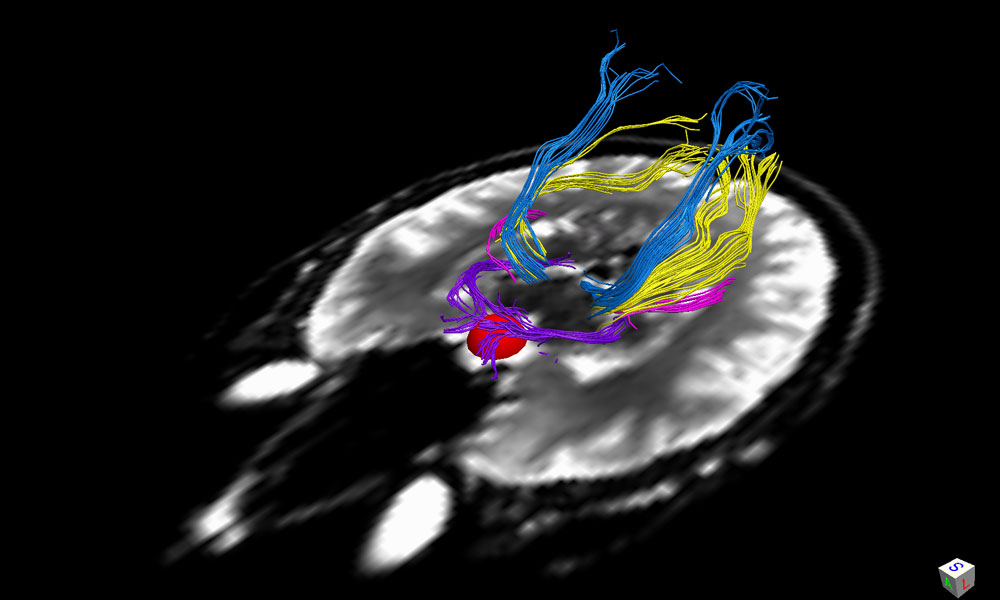
Brain stimulation speeds up visual learning in healthy adults, helps patients re-learn how to see
One particular type of brain stimulation enhances the brain’s ability to process visual information, and may aid in faster vision recovery after a stroke or traumatic brain injury.

Training brains—young and old, sick and healthy—with virtual reality
Rochester researchers are using virtual reality-based brain training to better understand the brain’s plasticity in athletes who have experienced concussions and older adults with mild cognitive impairments. The goal? Improved therapeutic treatments patients can do at home.

Groundbreaking research in brain injuries wins over Meliora Weekend judges, audience
What if researchers could find a way to bypass damaged areas of the brain to maintain the flow of information? That is the problem postdoctoral fellow Kevin Mazurek is working to solve.

New imaging technique helps predict how vision recovers after brain tumor removal
An interdisciplinary team of University neuroscientists and neurosurgeons has used a new imaging technique to show how the human brain heals itself in just a few weeks following surgical removal of a brain tumor.
